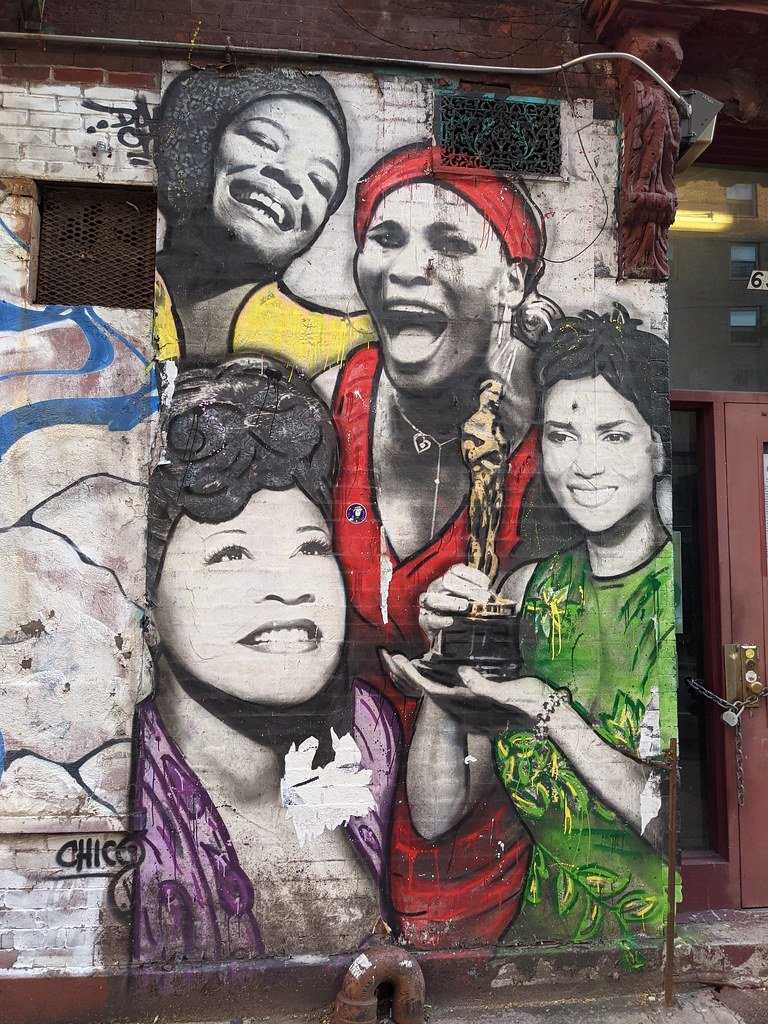There is no doubt about it: navigating the healthcare system can be a daunting task.
Historically, Black women have faced unique challenges in healthcare settings, often feeling unseen and unheard.
However, against the backdrop of adversity, Black women have been advocating for change and making strides towards a more equitable healthcare system.
In this blog post, we delve into the rich tapestry of experiences Black women encounter in healthcare settings-from doctor’s offices to community health clinics-and the powerful ways they’re championing health equity.
The Diverse Realities of Black Women in Health Care
A Glimpse into Healthcare Settings
The healthcare system is multifaceted, with numerous settings ranging from intimidating hospitals to familiar community clinics.
Picture a doctor’s office where a Black woman, her face a blend of apprehension and determination, speaks candidly with a healthcare professional who listens with empathy.
In another scene, imagine the hustle and bustle of a hospital, where a Black woman receiving care from a diverse team of doctors and nurses experiences the life-saving coordination of modern medicine.
Then, shift to a community clinic filled with warmth and support, where Black women share their healthcare experiences and advocate for each other in an empowering environment.
The Challenges Faced
The challenges Black women face in these healthcare settings are as varied as they are significant.
From implicit biases that often go unchecked to systemic issues that hinder equitable care, Black women frequently encounter obstacles that demand attention and action. These include:
– Bias and Mistrust: Implicit biases in healthcare can lead to inadequate treatment and a lack of trust between patients and providers.
– Health Disparities: Black women are disproportionately affected by conditions such as hypertension, diabetes, and maternal mortality.
– Access to Care: Financial and geographical barriers can limit access to essential health services.
Despite these challenges, Black women are resilient and resourceful, constantly advocating for themselves and their communities.
Breaking the Barriers: Advocacy and Empowerment
Self-Advocacy in Health Care
Self-advocacy is a crucial skill for anyone navigating the healthcare system.
For Black women, this often means learning to speak up and demand the care they deserve in environments that may not always be supportive.
The Importance of Being Heard

Being heard in a healthcare setting can mean the difference between life and death.
Studies show that Black women are less likely to be taken seriously when they express concerns about their health.
This dismissiveness can lead to delayed diagnoses and treatments. However, Black women are increasingly finding their voices and ensuring they are not only heard but respected.
Strategies for Effective Advocacy
Effective self-advocacy involves several practical strategies:
– Preparation: Going into appointments with a list of concerns and questions.
– Knowledge: Educating oneself about health conditions and available treatments.
– Support: Bringing a family member or friend to appointments for emotional and logistical support.
Community Support and Collective Advocacy
Just as crucial as self-advocacy is collective advocacy.
Many Black women find strength in numbers, joining support groups and community organizations focused on health equity.
The Role of Community Health Clinics
Community health clinics play a pivotal role in providing culturally competent care.
These clinics often offer services tailored to the specific needs of Black women, from prenatal care to chronic disease management.
Empowering Support Groups
Support groups provide a safe space for Black women to share their stories, learn from each other, and mobilize for change.
These groups can be a source of empowerment, fostering a sense of solidarity and purpose.
Moving Towards Equity: Systemic Changes
Addressing Implicit Bias in Health Care
Implicit bias training is becoming increasingly common in healthcare settings, aimed at reducing the unconscious prejudices that affect patient care.
The Impact of Implicit Bias Training
Such training can help healthcare providers recognize and mitigate their own biases, leading to more equitable treatment outcomes.
It’s about fostering an environment where all patients feel respected and valued.
Policy Changes and Advocacy
Systemic change often requires policy interventions. Advocates are pushing for policies that address:
– Maternal Health: Initiatives to reduce maternal mortality rates among Black women.
– Access to Care: Expanding access to affordable health insurance and services.
– Diversity in the Healthcare Workforce: Encouraging diversity among healthcare providers to better reflect and serve diverse patient populations.
The Role of Technology in Health Equity
Innovations in telemedicine and health tech are also playing a role in promoting health equity.
For example, telehealth services can help overcome geographical barriers, making it easier for Black women to access care.
A Call to Action
The journey toward health equity for Black women is ongoing, requiring concerted efforts from individuals, communities, and systems.
By sharing experiences, advocating for each other, and pushing for systemic changes, Black women are not only improving their own health outcomes but also paving the way for future generations.
Join the Movement
We invite you to join this movement for health equity. Whether you are a healthcare provider, a patient, or an ally, there is a role for you to play.
Educate yourself, support initiatives that promote equity, and amplify the voices of Black women who are advocating for change.
Together, we can create a healthcare system that truly serves everyone, ensuring that Black women-and all women-receive the compassionate and competent care they deserve.
Feel free to share your thoughts, stories, or questions in the comments below. Let’s keep this conversation going and work together towards a more equitable future in healthcare.
Continuing the Journey
This conversation is just the beginning.
More stories, insights, and resources on health equity for Black women will be shared in future posts. Stay tuned and stay engaged.

Comments